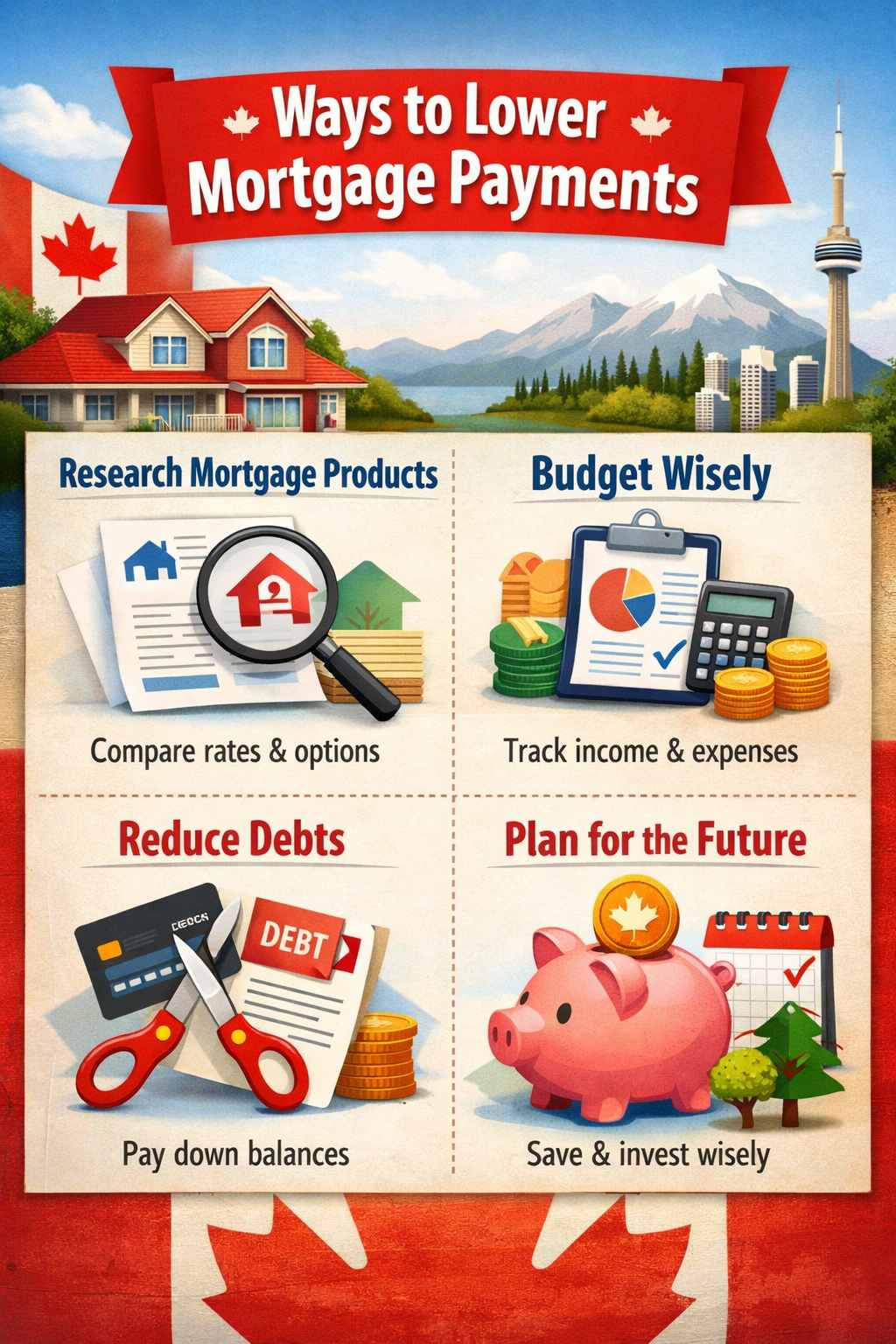Understand how this essential protection works for mortgages and property ownership in Canada.
Table of Contents
ToggleWhat You Need To Know About Title Insurance in Canada
Title insurance is a one-time, low-cost policy that protects homeowners and lenders from title-related risks such as fraud, unpaid property taxes, and disputes over ownership. In Canada, this insurance is not legally required by the government, but nearly every lender — 99% of the time — will not fund a mortgage without it. It helps ensure your property transaction is valid, your rights to ownership are secure, and your mortgage can be registered without legal issues.
If you’re buying, refinancing, or switching your mortgage, this guide covers what title insurance is, why it’s necessary, what it protects against, and how to secure it.
What is Title Insurance?
A Quick Definition
Title insurance is a type of insurance policy that protects against losses or damages related to the legal ownership—or “title”—of a property. It safeguards both homeowners and lenders from hidden defects, fraud, and other title-related problems.
Who Issues Title Insurance in Canada?
Title policies are issued by companies like:
-
FCT (First Canadian Title)
-
Stewart Title
-
TitlePLUS (Lawyers’ Professional Indemnity Company)
These companies work closely with real estate lawyers and notaries across the country.
Key Takeaway
Title insurance ensures you’re protected against legal surprises that could threaten your property ownership or cost you thousands in legal fees.
Why Lenders Require Title Insurance for Mortgages
Protecting the Lender’s Investment
When you get a mortgage, the lender registers their interest against the title of your home. If the title has hidden issues or is impacted by fraud, their ability to recover the loan becomes compromised.
This is why virtually all Canadian lenders — roughly 99% — require title insurance as a condition of funding.
Lender vs. Homeowner Policies
There are two types of title insurance:
-
Lender’s Policy – Mandatory. Protects the lender’s interest.
-
Owner’s Policy – Optional. Protects your ownership rights as the borrower.
Common Mistake
Many borrowers think the lender’s title insurance policy protects them, too. It doesn’t. That’s why purchasing an owner’s policy is something homeowners should consider.
What Does Title Insurance Cover in Canada?
Common Covered Risks
Title insurance is a surprisingly broad form of protection. It often covers:
-
Title fraud (e.g., someone impersonating you to sell your home)
-
Unpaid property taxes or utility charges by a previous owner
-
Errors in public records
-
Encroachments or boundary issues missed during the survey
-
Unknown heirs who surface with claims of ownership
Situations Where Title Insurance Helps
-
You refinance and a previously unknown lien prevents registration.
-
You buy a home, only to find someone else legally owns part of it.
-
A forged signature was used to transfer title before you purchased.
✅ Quick Checklist: What Title Insurance Typically Covers
-
[✔] Title fraud
-
[✔] Clerical errors in public records
-
[✔] Unregistered encroachments
-
[✔] Undisclosed property tax arrears
-
[✔] Forged documents
-
[✔] Unknown ownership claims
Key Takeaway
This insurance is not just about peace of mind — it’s legal and financial protection when your property rights are at risk.
What’s Not Covered by Title Insurance?
Known Issues or Disclosed Defects
If you were made aware of a problem at the time of purchase and proceeded anyway, title insurance won’t cover that issue.
Environmental or Structural Risks
It generally won’t cover:
-
Environmental contamination
-
Zoning non-compliance
-
Unsafe construction or code violations
Important to Note
Always review your policy carefully. Some policies offer enhanced protection for additional premiums, especially on high-value properties.
Understanding Title Fraud and Suspicious Activity
How Title Fraud Happens in Canada
Title fraud is one of the fastest-growing threats to Canadian homeowners. It typically involves:
-
Identity theft to pose as the homeowner
-
Unauthorized mortgage registrations
-
Forged legal documents submitted to land title offices
Red Flags to Watch For
-
Unexpected changes to your title or land registry
-
Legal notices for mortgages you didn’t sign
-
Pushback when trying to access title records
Key Takeaway
While title insurance financially protects you, being alert and proactive helps prevent long, stressful legal battles.
Borrower ID Verification and Title Insurance
Why Title Insurers Require Identity Checks
Identity verification is a core part of protecting against mortgage fraud. Before issuing an insurance policy, providers require lawyers or notaries to verify the borrower’s identity.
What You’ll Be Asked For
-
Two valid IDs, one of which must be government-issued with a photo
-
Supporting documents, such as utility bills, mortgage statements, or a SIN card
This process is also required when applying for mortgage financing.
Common Myth
“A title policy is just paperwork — it doesn’t involve identity.”
Not true. Title insurers scrutinize identification to protect against title fraud and fraudulent transactions.
How Much Does Title Insurance Cost?
Typical Premiums
-
Residential purchases: $350 – $700
-
Refinances: $300 – $700
-
Lender + owner bundle: Some firms offer joint policies for a slight discount.
This is a one-time payment made at closing. There are no ongoing premiums.
Factors That Impact Cost
-
Property value
-
Location (Ontario vs. BC or Alberta)
-
Whether the policy is lender-only or includes an owner’s policy
Tip
Use an online calculator from FCT or Stewart Title to estimate your costs in advance.
How to Purchase Title Insurance in Canada
Through Your Lawyer or Notary
In most cases, your lawyer or notary will arrange the required insurance policy as part of the home purchase or mortgage refinance process.
Direct Purchase Options
If you didn’t get title insurance when you bought your home, you can still buy an owner’s policy directly through a provider like TitlePLUS or FCT.
Key Takeaway
It’s far easier—and often cheaper—to get a title policy at the time of your home purchase or refinance.
Final Thoughts: Protect Your Property and Peace of Mind
Homeownership comes with enough stress. Don’t leave your legal rights unprotected. This insurance is required by nearly all mortgage lenders in Canada, but getting your own owner’s policy offers added protection against disputes, fraud, and registration errors.
Work with your real estate lawyer or mortgage broker to understand your options. Whether you’re buying a home or refinancing your mortgage, title insurance is a small investment that offers big protection.
FAQs
Q: Is title insurance mandatory in Canada?
A: While not required by law, virtually all Canadian mortgage lenders (99%) require title insurance before funding. It’s also strongly recommended for buyers to get their own owner’s policy.
Q: Does a title policy cover mortgage fraud or title fraud?
A: Yes, most Canadian title insurance policies include protection from identity theft, title fraud, and unauthorized transfers of ownership or mortgage registrations.
Q: How do I find out if I already have this insurance?
A: Contact the lawyer or notary who handled your home purchase or last refinance. They can confirm whether a policy was issued and whether it covers you or just the lender.
Q: Can I still get title insurance after buying my home?
A: Yes. While it’s best to get it at closing, you can still apply for an owner’s policy even years after you buy your home.
Q: Is my lender’s title insurance enough to protect me?
A: No. The lender’s policy only protects their interest. If a title issue arises, you’ll still need to cover legal fees or deal with the impact unless you have your own owner’s title policy in place.
Your home is a big investment and deserves protection.
- 7 Great Ways to Reduce Your Mortgage Payments Without Sacrificing Your Goals - January 19, 2026
- Important Factors Mortgage Lenders Use to Determine Your Mortgage Amount - January 14, 2026
- 9 Painful but Smart Options If You Lose Your Job and Can’t Pay Your Mortgage - January 12, 2026






